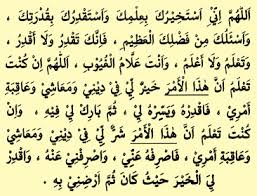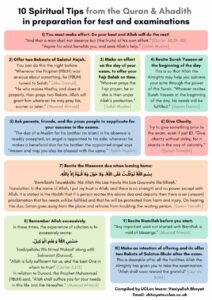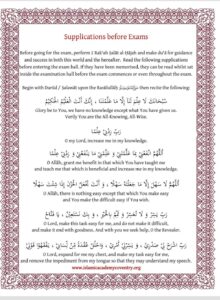Congratulations to you and your family on your bun in the oven. Allah bless you with a healthy and happy baby who lives and strives off faith and Islam, I hope Allah grants you the coolness of your eyes.

Motherhood! A very exciting experience and something I believe most women desire and dream for, as they are born nurturers. Amidst all the excitement, shopping, and getting your homes ready for this new addition to the family, sometimes you can forget the spiritual connection with that Exalted Being who has blessed us with this amazing journey.
No one said pregnancy and labour would be or is easy. But if you want that cute bundle of joy in your hands, then you have to push through (no pun intended!) these nine months and labour and show yourself that “you’ve got the power!”
Please remember to thank Allah for blessing you with this opportunity that many desire and don’t have. Don’t take even a split second for granted. Make it a habit of reciting:
اَللّٰهُمَّ لَكَ الْـحَمْدُ وَ لَكَ الشُّكْرُ
“O Allah, all praise and gratitude is for you”
Let me get to the point, here are some dua’ and some adhkar to help you through.
Students of Habib ‘Umar bin Hafidh (hafidhahulah), of Yemen collected this list of recommendations some years ago, for those amongst us who are pregnant or struggling with infertility.
Daily
- Surah Inshiqaq (Surah 84) – to be recited daily throughout the pregnancy
- Surah Luqman (Surah 31) – to be recited daily during the 1st trimester when the baby’s brain, mental faculties and nervous system are developing, this Surah helps the baby’s brain develop.
- Surah Yusuf (Surah 12) – to be recited in the 2nd trimester when the child’s physical appearance is forming, for beautiful physical appearance.
- Surah Maryam (Surah 19) – to be recited in the 3rd trimester as labour approaches
- “Ya Lateef” – to be recited 129 times every morning and evening
7th month only
- The husband should recite Surah Inshirah (Surah 94) 152 times on the baby
Labour
- The first ayat of Surah al-Fath’ (Surah 48)
- “Ya Lateef”
- Surah Maryam (Surah 19) for ease in labour (you can also play on YouTube)
- Surah Inshirah (Surah 94)
- “As salaam Alaikum ayuha-nabee wa rahmatullahi wa barakatu”
General advice
- Shaykh Muhammad Ba Shu’ayb once advised, for the sake of any children we are to have to recite all our adhkar and awrad everyday and to ensure that we pray as many prayers in congregation with our spouse.
- Read as much Qur’an as possible.
- Try and do as much salawat on the Prophet (saw) as possible – in particular Salat al-Tunjina’ and “As salaam Alaikum ayuha-nabee wa rahmatullahi wa barakatu”
- As babies are said to be able to recognise certain sounds and music from their time in the womb, reading certain texts such as the “Book of Assistance” by Imam al-Haddad, is advised in order to bring about recognition.
- One of the Habaib also advised pregnant women to look at pictures of the Ka’aba when she was too tired to actively engage in ibadah.
For those trying to conceive children
- Recite Surah Fatiha (Surah 1) 41 times in between the sunnah and fardh of Fajr prayer.
- Recite verse 38 of Surah Imran (Surah 3) as many times a day as possible.
In addition to that, ask Allah to bless you with pious children like our beloved Prophet Zakariya (AS) did:
رَبِّ هَبْ لِي مِنْ لَدُنْكَ ذُرِّيَّةً طَيِّبَةً إِنَّكَ سَمِيعُ الدُّعَاءِ
“O Allah bestow onto me from You, pure children. Verily you are the listener of du’aas”
Other Ulama suggest in your last month recite the first five ayahs of Surah Al-Inshiqaaq abundantly, as this will help with an easier delivery and labour. Or increase the recitation of Surah al-Inshiqaaq if you were already reciting from the start of the pregnancy.
Abstain from listening to music and replace that with recitation or Quran or adhkar, as it has scientifically been proven that the child is able to recognize certain sounds in the womb. Let’s bless our unborn child with the words of Allah (S.W.T). Then follow that habit through postnatal and you will be surprised as to how much comfort your child will get from listening to the words of Allah (S.W.T) from as early as birth. I’ve seen it with my very own eyes.
Please stay away from sin, talking ill of people and slander. Try to stay pure at heart and tongue and you will see your children grow to reap the benefits.
Print and keep the list of dua’ for pious children (below) and make a habit of reciting them often. One way to do this is to tape it to the wall next to your dresser mirror and recite the dua (or just a couple of them if your kids or husband are impatiently waiting for you to get ready!) as you get ready in the morning.
Lastly, advice from Mufti Ikramul Haq Saheb (hafidhahullah) of Blackburn: “Through experience, we have seen placing the book ‘Muwatta Imam Malik’ under the pillow at the time of labour, eases labour pain.”
Allah grant you all ease and peace throughout the pregnancy, a smooth labour, as well as granting you pious children, righteous and the coolness of your eyes. Ameen.
Ismail ibn Nazir Satia (One who is in dire need of Allah’s forgiveness, mercy and pleasure)
Rabiul Awwal 1440
 (Pick and choose the right questions, obviously you are not going to ask all the questions)
(Pick and choose the right questions, obviously you are not going to ask all the questions)
 ANY DUA TO AVOID DISPUTES WITH MY HUSBAND?
ANY DUA TO AVOID DISPUTES WITH MY HUSBAND?










